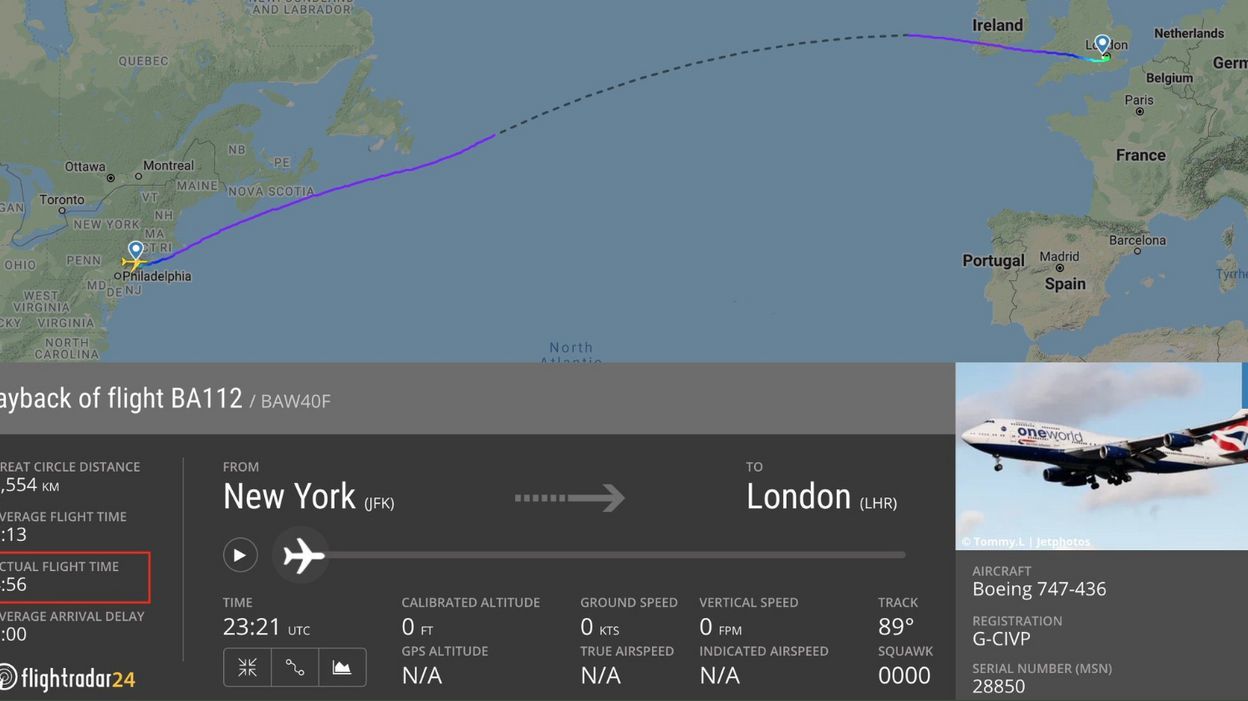In January, Amsterdam became Europe’s largest stock trading center, increasing the value of stocks traded daily by about four times compared to 2020 and surpassing London, which has been Europe’s largest and most important financial market for decades.
Come he told the Financial Times, this important change was caused by Brexit: due to a lack of agreement between the United Kingdom and the European Union, starting from January, when the exit from the Union took place completely, on the British financial markets it is no longer possible to buy and selling euro-denominated securities: this has resulted in a huge shift in transactions from one financial market to another.
In January, the total value of shares traded in Amsterdam (on the Amsterdam stock exchange, which is called Euronext, and in other alternative financial markets, such as CBOE and Turquoise) rose from an average of € 2.6 billion per day in 2020. to 9.2 billion. Meanwhile, the same value in London went from € 17.5 billion to € 8.6 billion. Other stock exchanges of European Union countries, especially those of Frankfurt and Paris but also to a small extent those of Milan and Dublin, have seen quite substantial increases in transactions.
– Read also: The effects of Brexit, one month later
This big shift occurred because, after Brexit, the European Union did not recognize an “equivalence regime” for British financial markets: the Union considers that British financial regulation is not at the level of the EU, and has prohibited institutions financial institutions to buy and sell euro-denominated securities on the UK financial markets.
A security is said to be “denominated in euros” when it is issued and traded in euros. In practice, the securities of almost all companies that have been listed on a stock exchange in the euro zone are denominated in euros, and this means that the ban imposed by the European Union prevents EU financial operators from buying and selling on the UK market. most of the stocks of European companies, which was possible before Brexit without problems.
For this reason, on January 4, 2021, the day the stock exchanges opened after the New Year’s break, 6.5 billion euros of transactions were suddenly moved from London to Amsterdam, and this figure grew in the following days.
It appears that most operators have chosen Amsterdam over other renowned European markets such as Paris and Frankfurt for several reasons, including a slightly more advantageous regulatory regime, the European reach of the Euronext platform, which also extends to many countries, and the fact that Amsterdam is perceived as a somewhat neutral market, devoid of the strong identity that the French and German financial markets have.
Financial market regulation was practically not covered in the Brexit agreement signed at the end of December between the UK and the European Union, and this has meant that, like he wrote the British financial newspaper City A.M., “the deal on Brexit is a no-deal for the City ”, that is, for the financial district of London, which would not have received the guarantees granted to other economic sectors at the time of leaving the European Union.
The two sides should resume negotiations and hope to find an agreement by March, but it is by no means certain that this will guarantee the equivalence regime in London.
Meanwhile, UK financial authorities have accused the European Union of deliberately penalizing London. Bank of England Governor Andrew Baley said Wednesday that the Union was making “a mistake” and that London would be required to conform to standards that even EU member states do not adhere to.
– Read also: Who won with the Brexit deal?
It is not yet possible to quantify the damage that the shift in transactions will cause to the UK financial system. Some British analysts argue that the overtaking of Amsterdam is above all symbolic, and that there will be no significant impact either on jobs in the London financial sector or on the amount of taxes the British state is able to collect on financial transactions, and that last year they amounted to £ 76 billion.
There is also the possibility that the leadership of Amsterdam will not last long: since the end of January, trading in the securities of Swiss companies such as Nestlé and Roche has begun in London, which are currently banned on European Union markets. due to the lack of an equivalence regime. Swiss securities transactions are currently worth an average of 250 million euros per day, but could increase, second Reuters.
Also in the UK, some commentators even argue that this change could be positive, because it would allow the London financial market to be less dependent on the European Union and to internationalize. London, in any case, remains the first market in Europe for the purchase and sale of other financial products such as derivatives, although there is also movement in this field: Intercontinental Exchange, a market whose daily transactions amount to one billion euros and which is deals with trading in carbon dioxide emissions, announced that in a few months will move from London to Amsterdam.
Other analysts, on the other hand, believe that the financial markets of the euro zone, and in particular Amsterdam, could continue to weaken London. The Financial Times, for example, he wrote in January that Amsterdam could become an important European center for the listing of new companies. Last year, only two companies went public on the Amsterdam stock exchange, compared to 36 in London, but one of the two was the largest European listing of the year, that of coffee producer JDE Peet.
–


